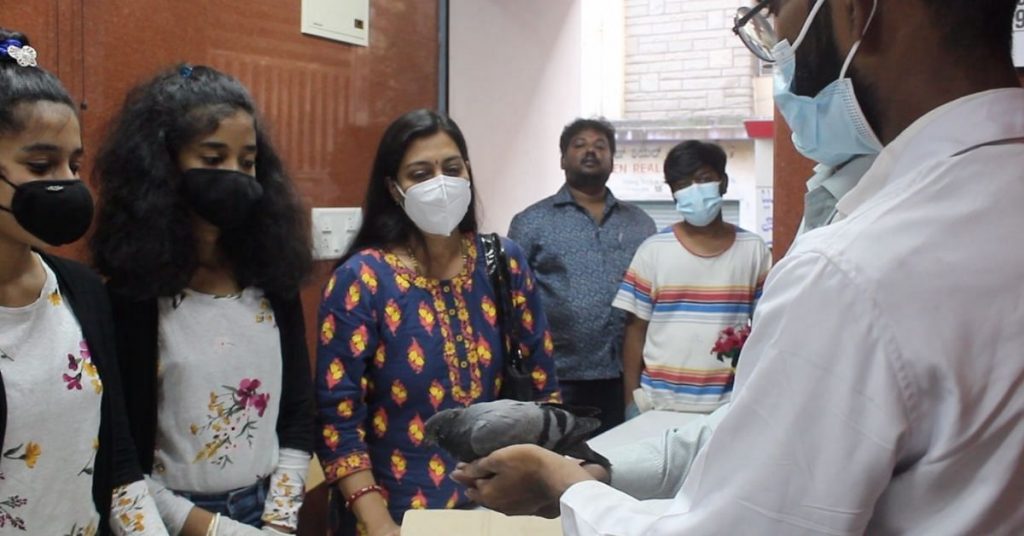A man dressed in green and black hurries in carrying a cardboard box in hand. Inside, there is a pigeon, injured and in serious need of medical care. Staff members gently take the bird out, and rush it in for treatment and observation. Over time, it is fed well and cared for, before eventually being set free.
This is what every day looks like at Shree Shankheswar Parshwanath Jain Kabootar Daana Seva Samithi, an NGO and ‘pigeon-only’ hospital located in Rajaji Nagar, Bengaluru, which treats and rehabilitates injured pigeons free of cost.
“Pigeons are considered a symbol of peace across the world, and have historically been used as messengers. So we treat them with utmost care and feed them well,” says Vasanthraj Ranka, the treasurer of the hospital.
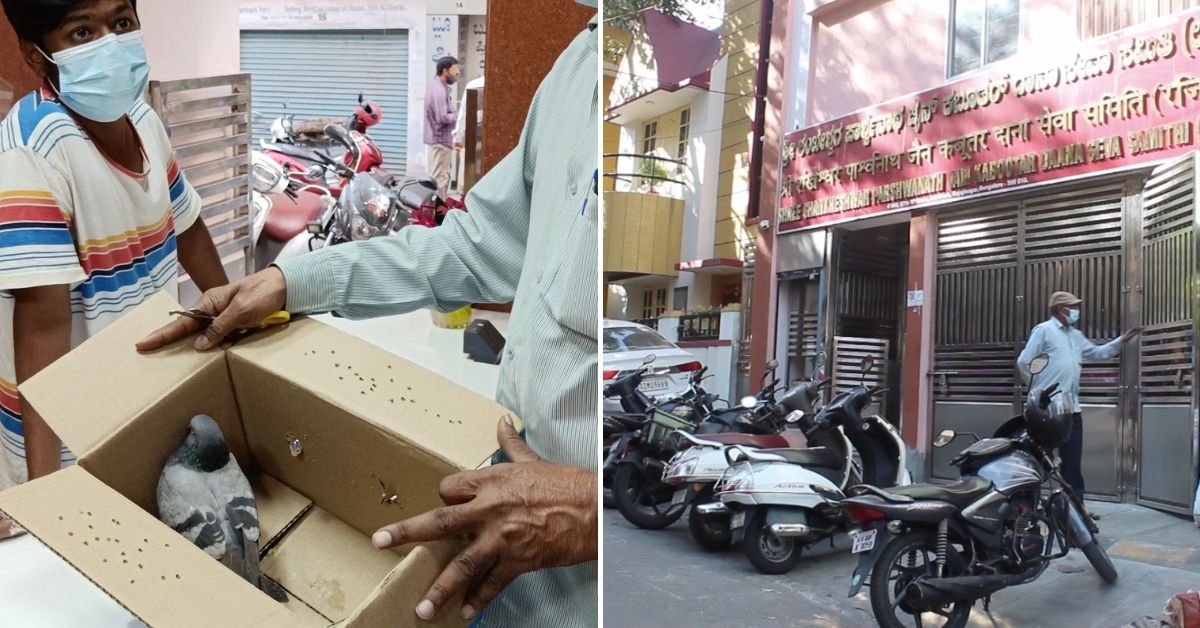
The hospital, which is part of the NGO, was first set up four years ago by Vasanthraj, who has been taking forward his father’s 24-year-old initiative. The NGO was established in 1998 by Vasanthraj’s father Pukhraj Ranka, along with his friend Pannalal.
“My father and his friend used to feed pigeons everyday. As the number of pigeons increased, they realised the need for setting up a trust exclusively to feed them. The trust was subsequently formed with 23 members, who shared the same interest,” says Vasanthraj, who also runs an insurance business.
The trust has been feeding pigeons everyday for over two decades. “Two staff members go out to feed the bird every day at 6.30 in the morning, without fail. We even went out to feed them during the lockdown after getting special permission from the police. We now feed around 15 sacks (50 kg each) of grains daily and spend over Rs 50 lakh per year,” says the 55-year-old.
(Please note: Many experts suggest that over-feeding pigeons is a serious problem that needs addressing. It has led to a population explosion, which in turn has resulted in a spread of respiratory diseases, alongside disturbing the natural balance due to an increased dependency of the birds on human beings.)
“We get the money only through donations. Also, we never go around requesting funds,” he clarifies.
After starting the hospital in 2018, Vasanthraj received tremendous response from the residents of Bengaluru, he says. “Rescuers make sure that the birds are ferried safely to the hospital. They send the pigeons via service providers like Dunzo, or bring them here directly. Some of them even go the extra mile by sending them in luxury cars. The rest is upto us. We don’t charge a single penny for our service,” he explains.
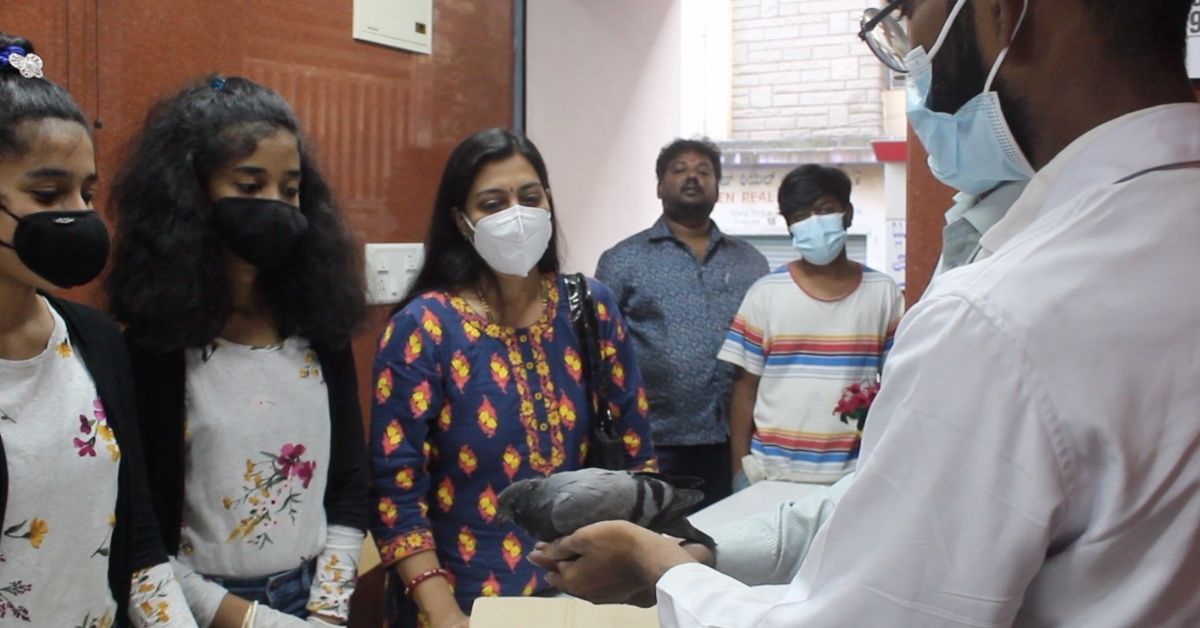
“We now house around 700 pigeons in our hospital. They are all brought in by kind people who happen to see them left injured or with some disease. They are treated for their injuries or diseases and are fed well. Later when they become fit enough to fly away, we release them,” he elaborates.
The winged patients are also ferried to the hospital through other delivery and transport service providers like Swiggy Genie, Ola, and Uber. “The presence of several service providers has made our work easier. If we had to send our staff to rescue the pigeon, it would cost us a lot of money and we wouldn’t be able to afford it. So, we suggest sending them via these service providers,” he adds.
According to Vasanthraj, on an average, the hospital receives around 30 to 40 pigeons everyday. He says, “Most of the birds we receive have diseases, infections, or an injury or cut to the legs or wings. Sometimes when these birds have a cut on their wings, they might not be able to fly again. So, we keep them at the hospital forever.”
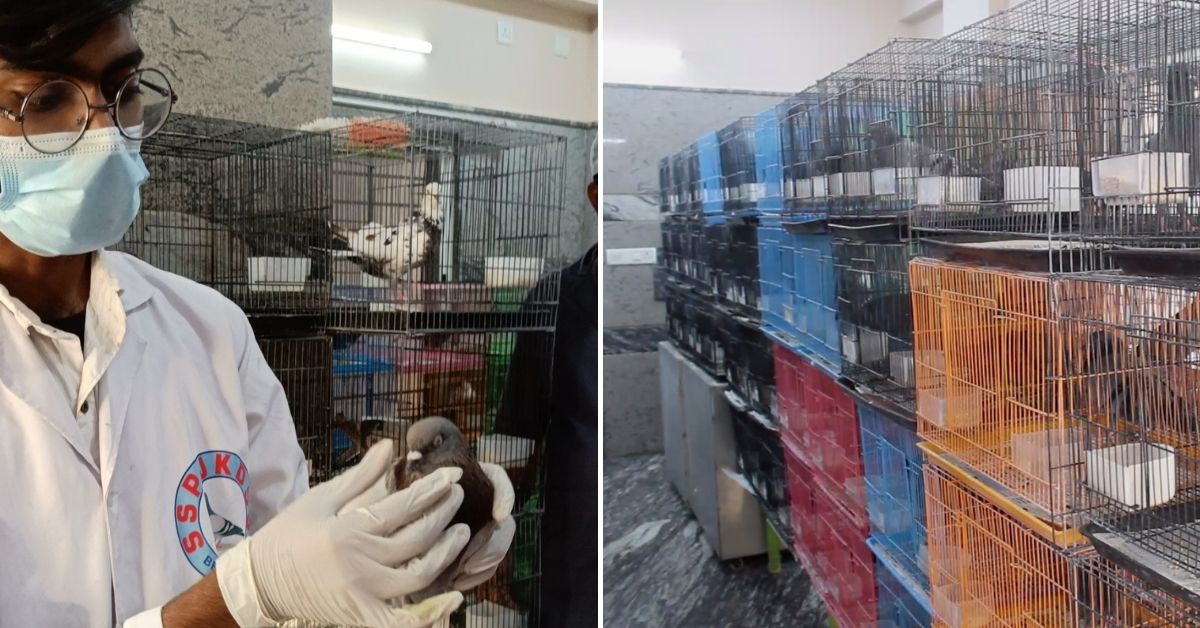
The hospital hosts the pigeons according to their health conditions.
“As soon as we receive them, we let them rest in the same box for at least an hour to make them feel comfortable. After observing their behaviour, we move them into a cage and treat them according to their health condition,” says Prashanth R, rehabilitator at the hospital.
One of the floors in the building is used as a godown for keeping the grains. “We keep all the sacks we receive as donations within the hospital. We mostly feed them jowar,” says Suresh, manager of the hospital.
Apart from keeping the pigeons, the hospital also provides accommodation for a few of their staff in the building itself. “We have rooms for a few staff within the hospital since we want the pigeons to be taken care of even at night,” he says.
The second floor of the hospital is dedicated for keeping birds with diseases. “Birds with Paramyxovirus (PMV), pigeon pox, eye infections and other medical conditions are kept separately and are treated with proper medication,” explains Prasanth.
Once the birds recover, they are taken out to the terrace of the hospital. “The fully recovered birds are released in different parts of the city. Sometimes even after we release the birds, they find their way back to the hospital and come to the terrace,” he adds.
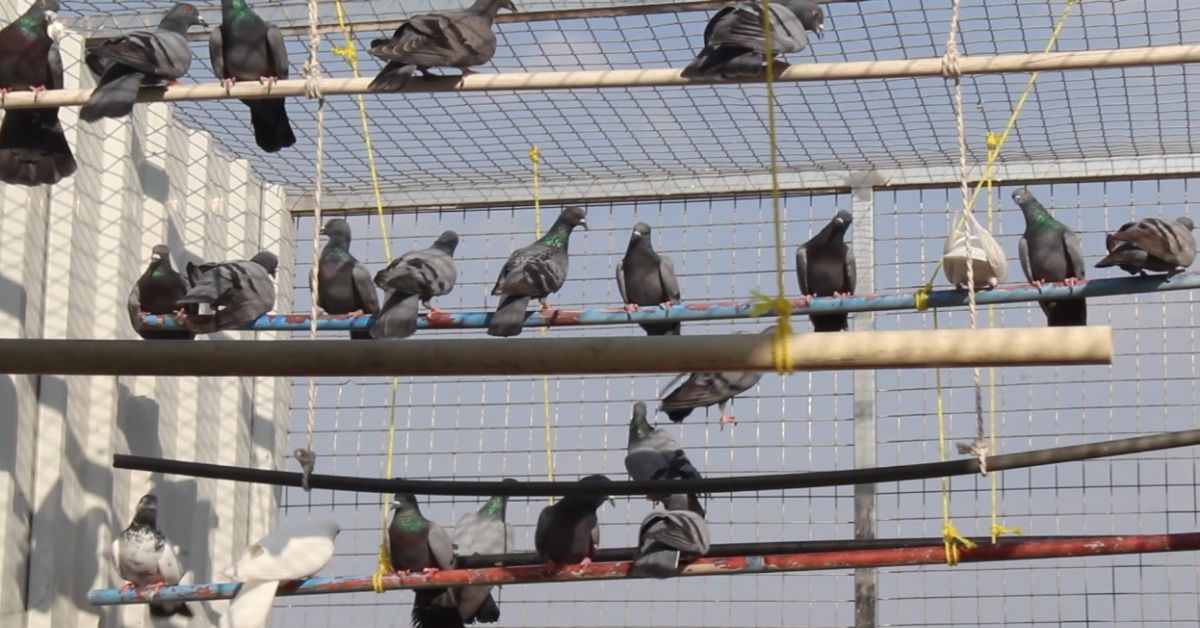
The team feeds pigeons everyday across the city at places such as Cubbon Park, Freedom Park, Devaiah Park, Nethaji Park, Manjunath Nagar, and Press Club.
Would you, too, like to help a pigeon? Here’s how you can send one to the hospital.
- Place the bird in a cardboard box
- Make small holes for ventilation
- Spread a few layers of old clothes for cushioning.
- Book a vehicle from any delivery or transport service providers.
- Request the driver to hand over the bird safely
How to send a pigeon after 6 pm
- Place the pigeon securely in a cardboard box and keep it overnight and send it to the hospital after 9 am the next day.
- The pigeon never eats/drinks between dusk to dawn. So, feed them with raw wheat / jowar / ragi / fried gram / green gram and water after sunrise.
- Do not force feed the pigeon, as it may choke.

